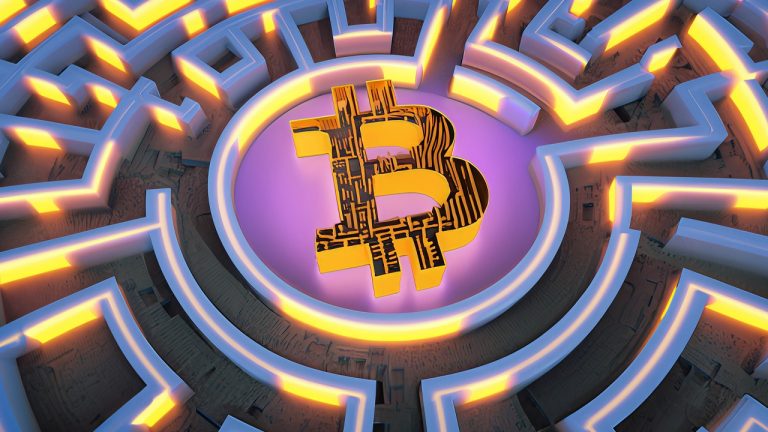Bitcoin Miners Navigate Record Challenges and August’s Dual Difficulty Hike
Publikováno: 23.8.2023
 Bitcoin miners faced another uphill battle this month, marking the second straight increase in mining difficulty. On August 22, at block height 804,384, the difficulty surged by 6.17%. This fresh peak in Bitcoin’s difficulty sets a new record, intensifying the challenge for miners in securing block rewards. Bitcoin Difficulty Jumps More Than 6% Higher On […]
Bitcoin miners faced another uphill battle this month, marking the second straight increase in mining difficulty. On August 22, at block height 804,384, the difficulty surged by 6.17%. This fresh peak in Bitcoin’s difficulty sets a new record, intensifying the challenge for miners in securing block rewards. Bitcoin Difficulty Jumps More Than 6% Higher On […]

Bitcoin miners faced another uphill battle this month, marking the second straight increase in mining difficulty. On August 22, at block height 804,384, the difficulty surged by 6.17%. This fresh peak in Bitcoin’s difficulty sets a new record, intensifying the challenge for miners in securing block rewards.
Bitcoin Difficulty Jumps More Than 6% Higher
On August 22, 2023, Bitcoin’s network difficulty surged by 6.17%, setting a record at 55.62 trillion. This spike signals that miners will have to exert significantly more computational muscle to discover blocks. So far in August, there have been two notable shifts: a modest 0.12% increase on August 9, 2023, and the substantial 6.17% climb. Coupled with the recent dip in BTC’s value, miners are grappling with heightened challenges.
Yet, the network’s hashrate remains robust, hovering just above the 400 exahash per second (EH/s) mark. An average of 403.6 EH/s was recorded across the last 2,016 blocks, and the preceding epoch’s block time averaged 9:20 minutes. Impressively, as of Wednesday, blocks are being generated even faster, in 8 minutes, 52 seconds, suggesting that miners remain undeterred by the current turbulence. The network’s next anticipated difficulty adjustment is around September 4, 2023.
Recent data reveals that 459 blocks were produced over three days, all filled with transactions and zero empty blocks. Foundry USA leads the pack with a dominant 30.94% hashrate share, equating to 124.72 EH/s, and 142 blocks mined. Hot on the pool’s heels are Antpool and F2pool, commanding hashrate shares of 21.79% and 19.39% respectively. Average block sizes typically range between 1.6 and 1.7 million bytes among these pools. Additionally, transaction fees, as a slice of block rewards, remain consistent, floating between 1.4% and 1.91% across pools.
What do you think about the Bitcoin network’s latest difficulty increase? Share your thoughts and opinions about this subject in the comments section below.